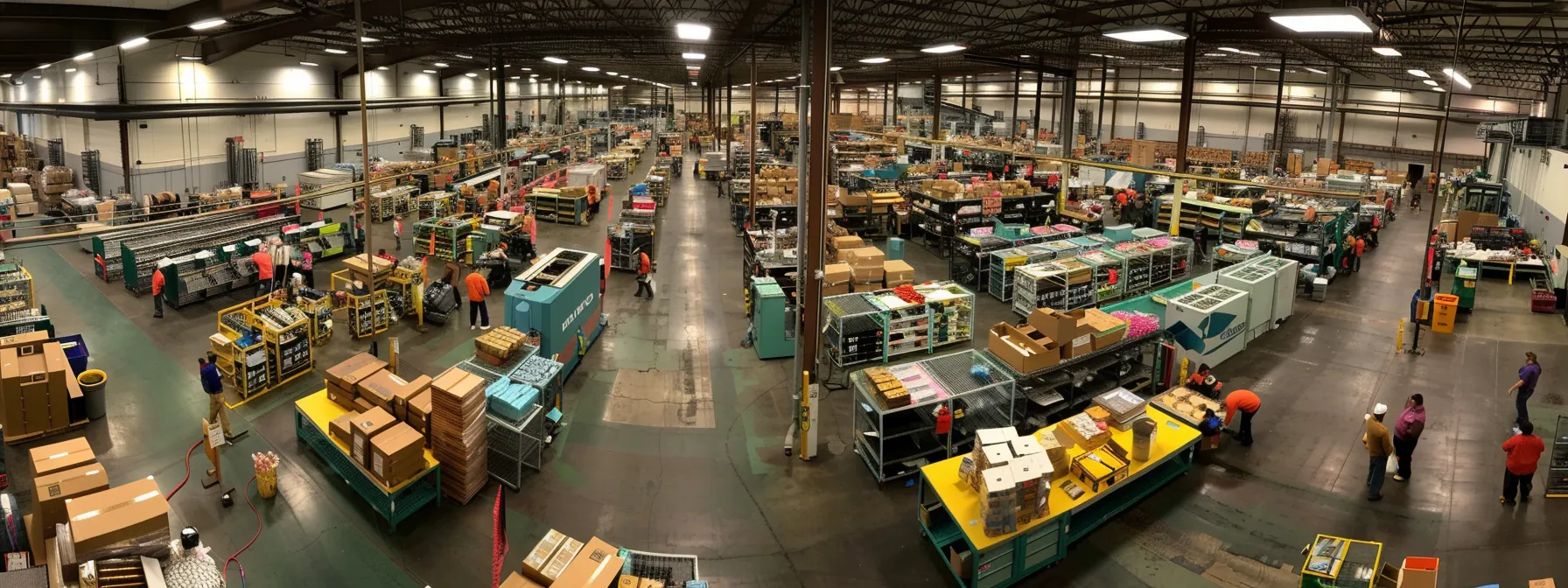
Tools and Resources for Improved Manufacturing Business Operations
Tools and Resources for Improved Manufacturing Business Operations
In the competitive world of manufacturing, staying ahead means adopting the latest technologies and strategies to enhance productivity and efficiency. Manufacturers must ensure that their operations are agile, scalable, and aligned with modern trends to not only survive but thrive in an evolving industry. Keep reading to discover essential tools and resources that can bolster your manufacturing business operations.
Streamlining Production With Advanced Manufacturing Software

The backbone of any robust manufacturing operation is an advanced software solution that streamlines production processes. Enterprise resource planning software brings together all facets of a business, from production to customer relations, under a single umbrella. This integration ensures a seamless flow of information and reduces the risks of errors.
Another advantage of manufacturing software is real-time inventory management. With accurate, up-to-the-minute data, businesses can make informed decisions about when to re-order materials, which products to focus on, and how to manage production schedules effectively. This proactive approach alleviates the risks of both overproduction and stockouts.
Advanced planning and scheduling systems are also a cornerstone of modern manufacturing software. They enable manufacturers to optimize their production cycles, balance workloads across different equipment, and reduce bottlenecks. By forecasting demand and adjusting operations accordingly, companies can achieve higher efficiency.
Leveraging Internet of Things (IoT) for Real-Time Monitoring and Control

The IoT is transforming manufacturing facilities into smart environments. By equipping machinery with sensors, businesses can monitor equipment performance in real time, predicting maintenance needs before they turn into costly downtime. This proactive approach keeps operations running smoothly and extends the lifespan of valuable machinery.
IoT also plays a pivotal role in controlling production processes and ensuring precision. As sensors collect data from the production line, control systems can automatically adjust parameters to correct deviations, minimizing human error and maintaining consistent quality.
Moreover, when integrated with OTTO SEO, IoT can bolster an organization’s operational insights. This combination unleashes a wealth of data-driven strategies to enhance online presence and customer engagement based on real-time manufacturing trends and insights.
Integrating Cloud Computing for Better Data Management
Cloud computing is becoming increasingly important in manufacturing business operations due to its flexibility and scalability. Centralized data storage and access allow team members to collaborate effectively, regardless of their physical location.
Data analytics and visualization tools on the cloud provide valuable insights into production trends, customer preferences, and market conditions. This empowers manufacturers to make data-driven decisions to optimize their operations and product offerings.
Cloud-based solutions also offer robust security features. As cyber threats evolve, it is crucial to employ a platform that protects sensitive data and ensures compliance with regulatory requirements. The built-in security measures of cloud services can be a major asset in this regard.
Utilizing Lean Manufacturing Techniques and Tools for Waste Reduction

Lean manufacturing principles center on maximizing value while reducing waste. Tools such as Value Stream Mapping help identify inefficiencies in the production process and create more streamlined operations.
Kanban systems enhance workflow visibility and help manage inventory by indicating when it’s time to reorder materials. This just-in-time approach can significantly lower warehouse costs and reduce the chances of overstocking or running out of critical supplies.
Another essential aspect of lean manufacturing is Total Productive Maintenance (TPM), which focuses on preventive maintenance to minimize machine downtime. By incorporating TPM, manufacturers can maintain a steady pace of production without the interruptions of unexpected equipment failures.
Altogether, these tools and resources are essential for manufacturers who are looking to improve their operations. They are not just a means for enhancing productivity and efficiency, but also key drivers of competitive advantage in a fast-paced industry. Overall, investing in advanced manufacturing software, IoT technology, automation, cloud computing, and lean manufacturing techniques can lead to substantial growth and sustainability.